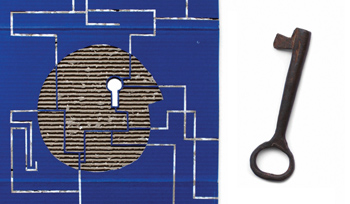Submitted by Denitsa on
United States
Title:
Board of Education, Island Trees Union Free School District No. 26 et al. v. Pico
Court:
United States Supreme Court
Citation:
Bd. of Educ., Island Trees Union Free Sch. Dist. No. 26 v. Pico, 457 U.S. 853 (1982).
Date:
25 June 1982
Instrument(s) Cited:
First Amendment to the Constitution of the United States guaranteeing freedom of speech.
Case Summary:
Background:
The local Board of Education ordered that certain books, which the Board deemed "anti-American, anti-Christian, anti-Sem[i]tic, and just plain filthy," be removed from high school and junior high libraries. A group of students sued on constitutional grounds, asking the court to: (1) declare the Board's actions unconstitutional; and (2) order the return of these books.
Issue and resolution:
Access to information. The Court had to decide whether the students’ First Amendment rights limit a school board's discretion to remove books from school libraries. It was held that the Board’s decision was not adequately motivated and the restriction on the right to access to information was therefore unconstitutional.
Court reasoning:
The Court said that the First Amendment affords students not only the right to speak, but also to access information and this right to access information is especially important in school libraries. In the words of the Court: "local school boards may not remove books from libraries simply because they dislike the ideas contained in those books and seek their removal to 'prescribe what shall be orthodox in politics, nationalism, religion, or other matters of opinion.'"
The court's reasoning focused on the motive for restricting the right to access to information. It was held that although school boards may remove books from libraries for proper purposes (e.g. moving from a larger library to a smaller library might necessitate removing some books), they are not entitled to remove books because they disagree with the ideas in those books or because the board aims to promote a particular political orthodoxy. Because the record was inconclusive as to the Board's motivations for removing the books, the Court determined more fact-finding was necessary on this issue.
Impact:
The Board voted to re-introduce the banned books into the junior high and high school libraries on the condition that students checking out these books had to take home a parental warning slip. However, the New York Attorney General decided that this parental notification violated a law protecting library record confidentiality, and the Board subsequently voted again to return the books to the libraries.
Notes:
For more information on children’s right to freedom of expression and access to information, including a selection of case law, please see CRIN’s campaign ‘Protect children, end censorship’.
Link to Full Judgment:
http://caselaw.lp.findlaw.com/scripts/getcase.pl?court=US&vol=457&invol=853
This case summary is provided by the Child Rights International Network for educational and informational purposes only and should not be construed as legal advice.

